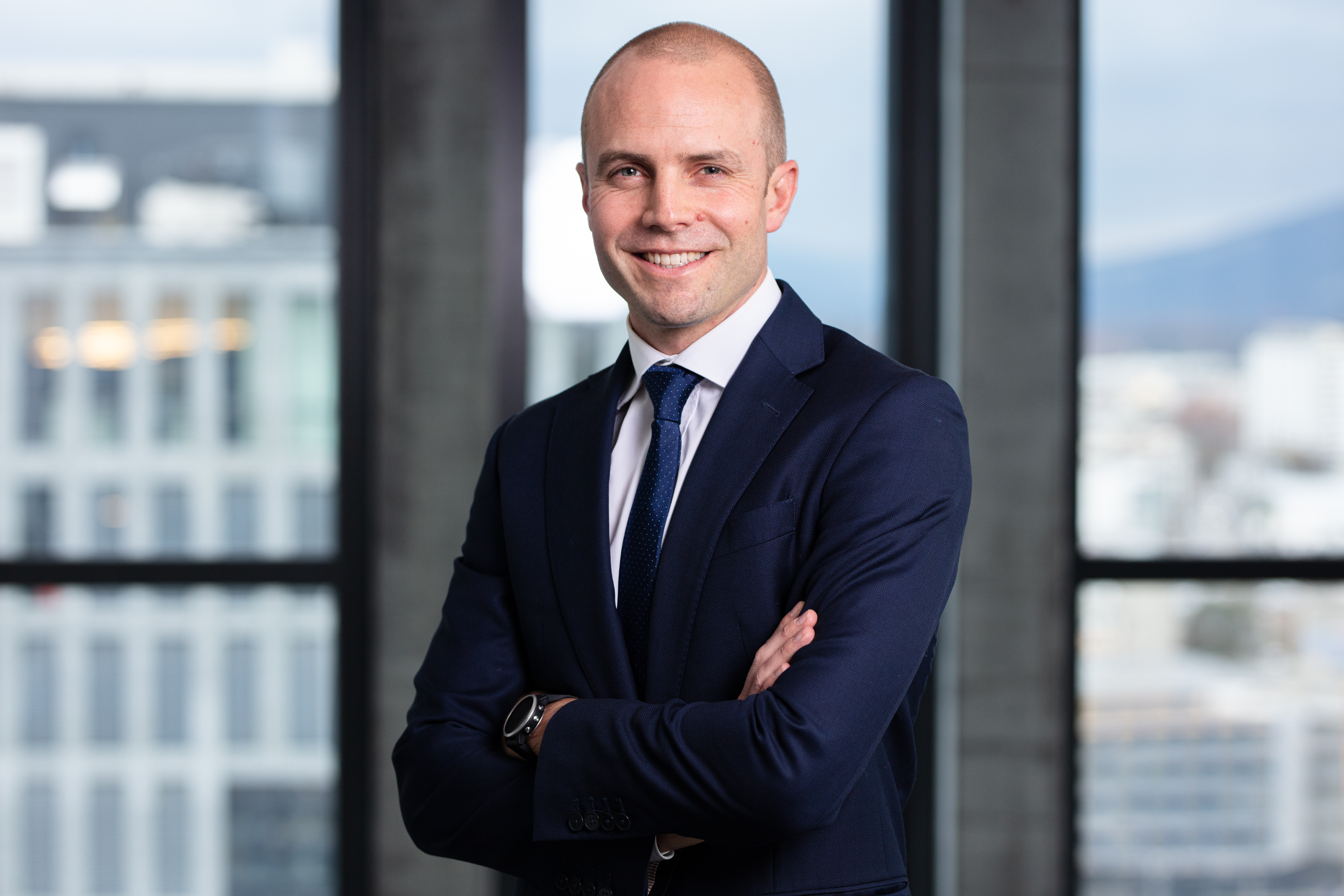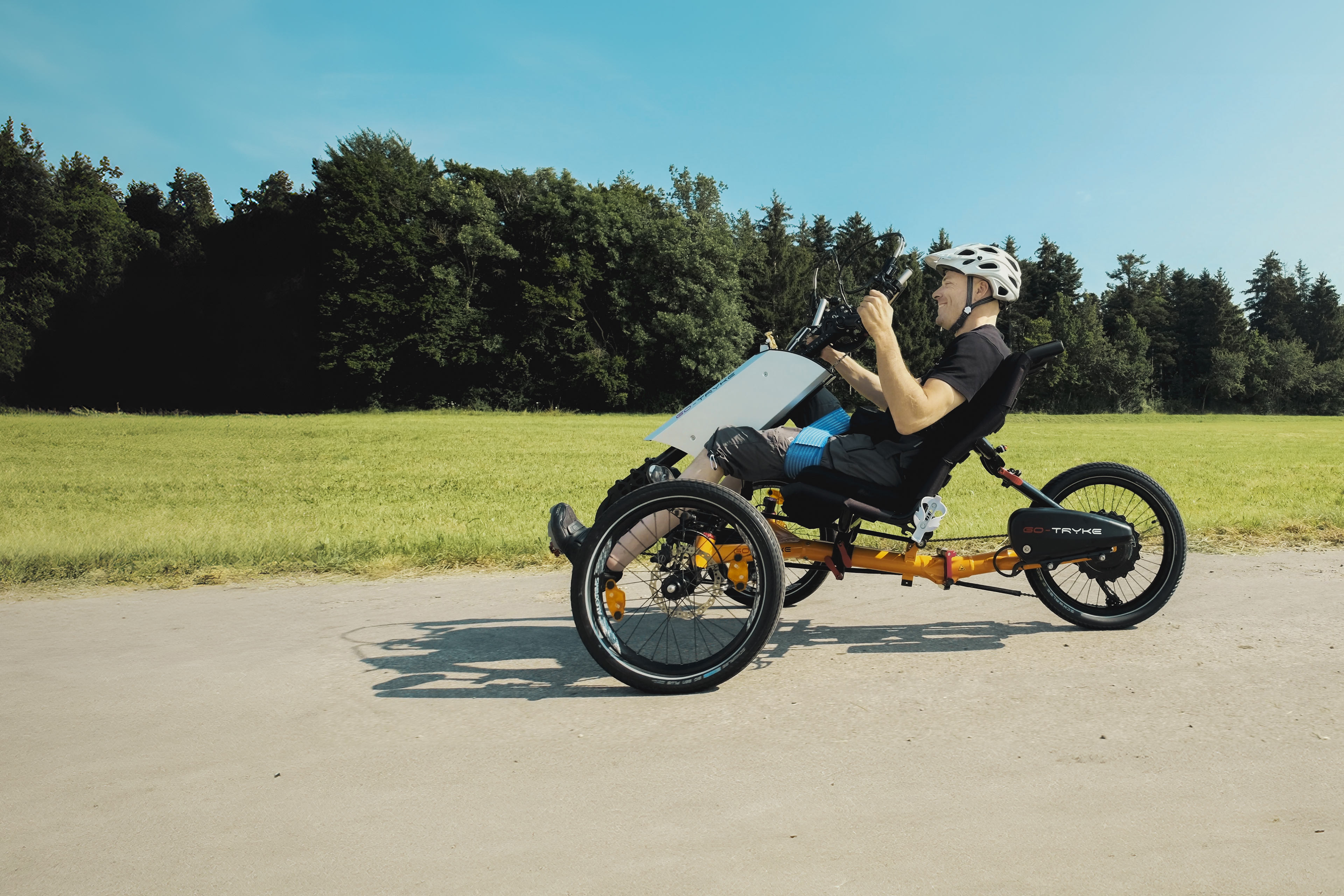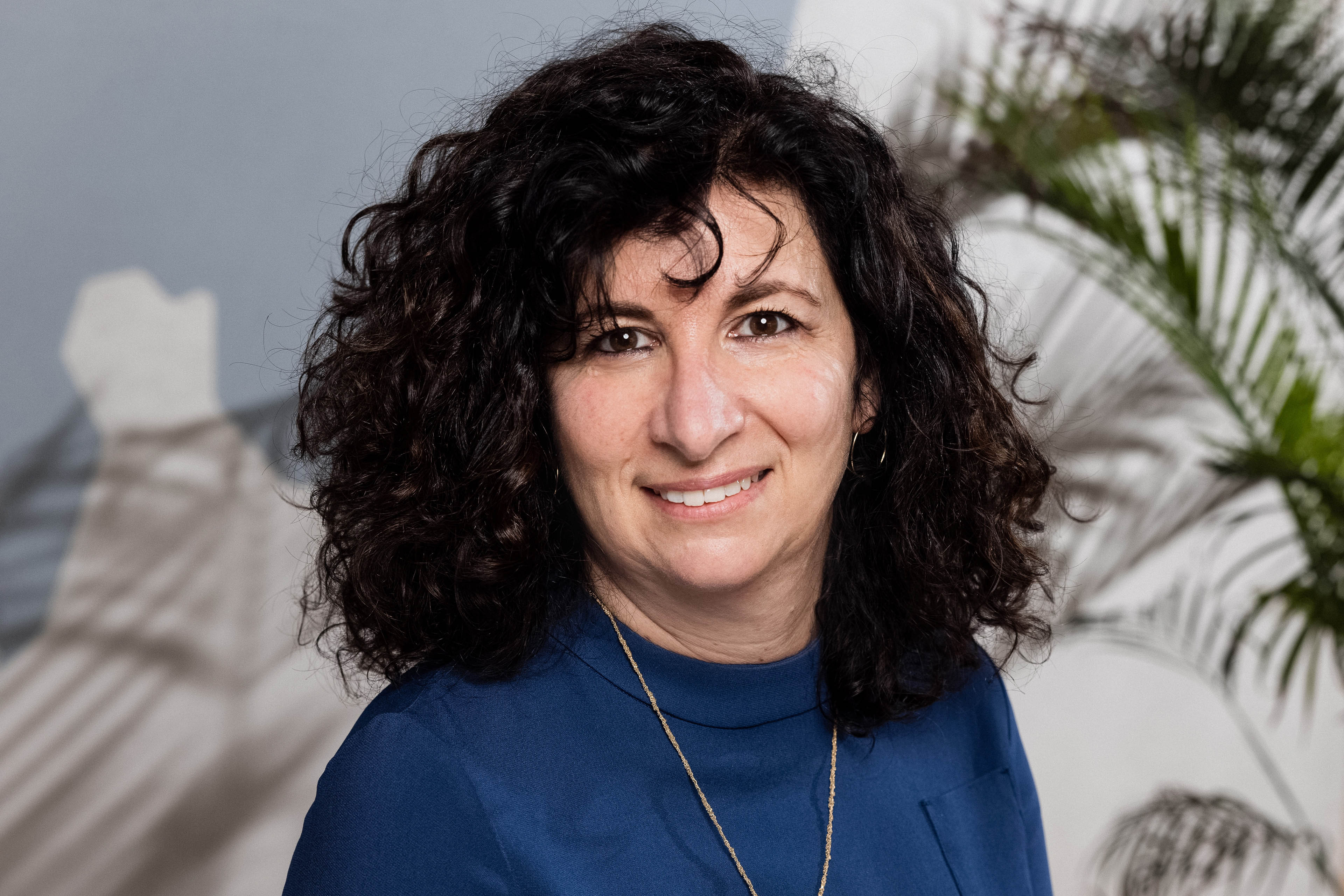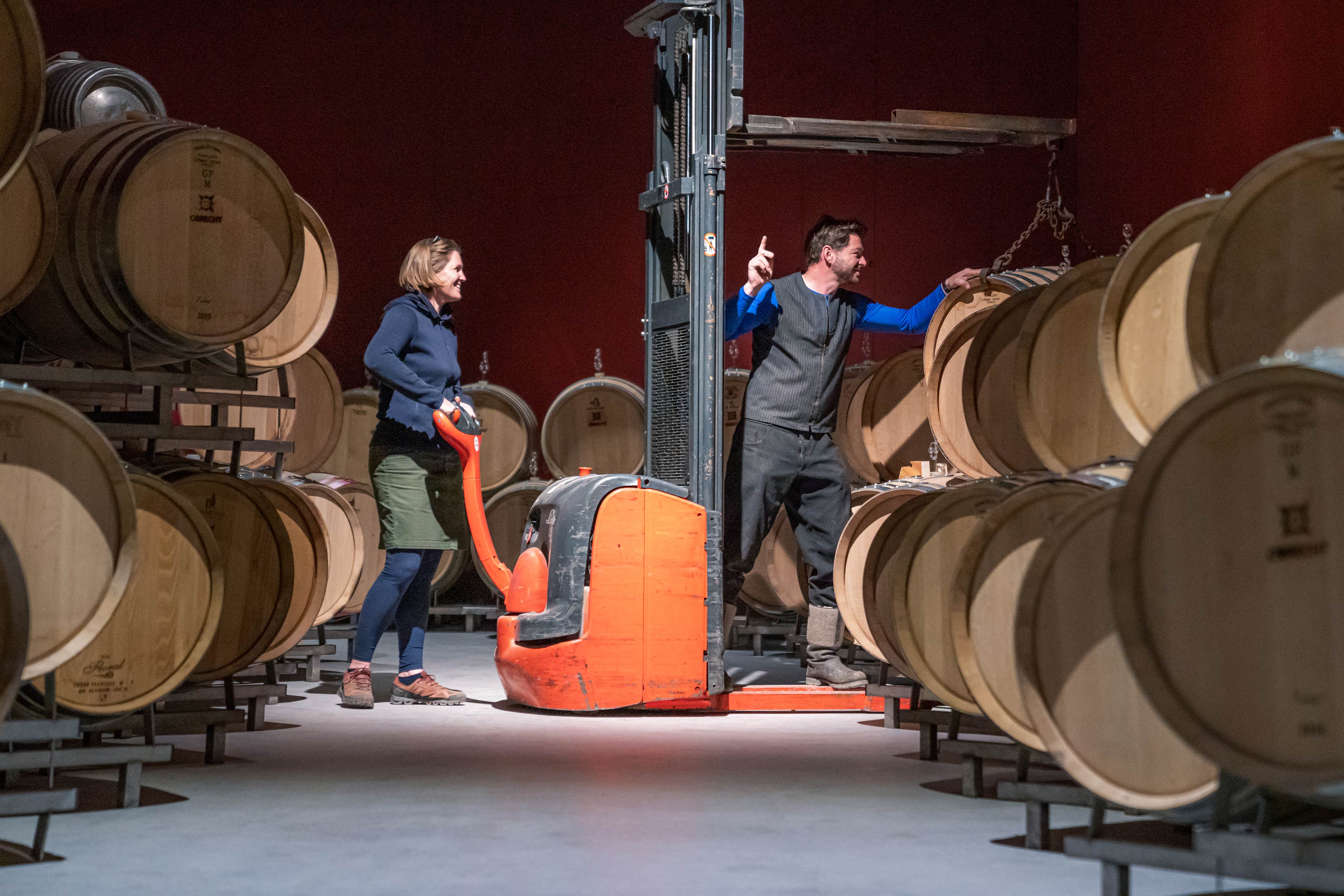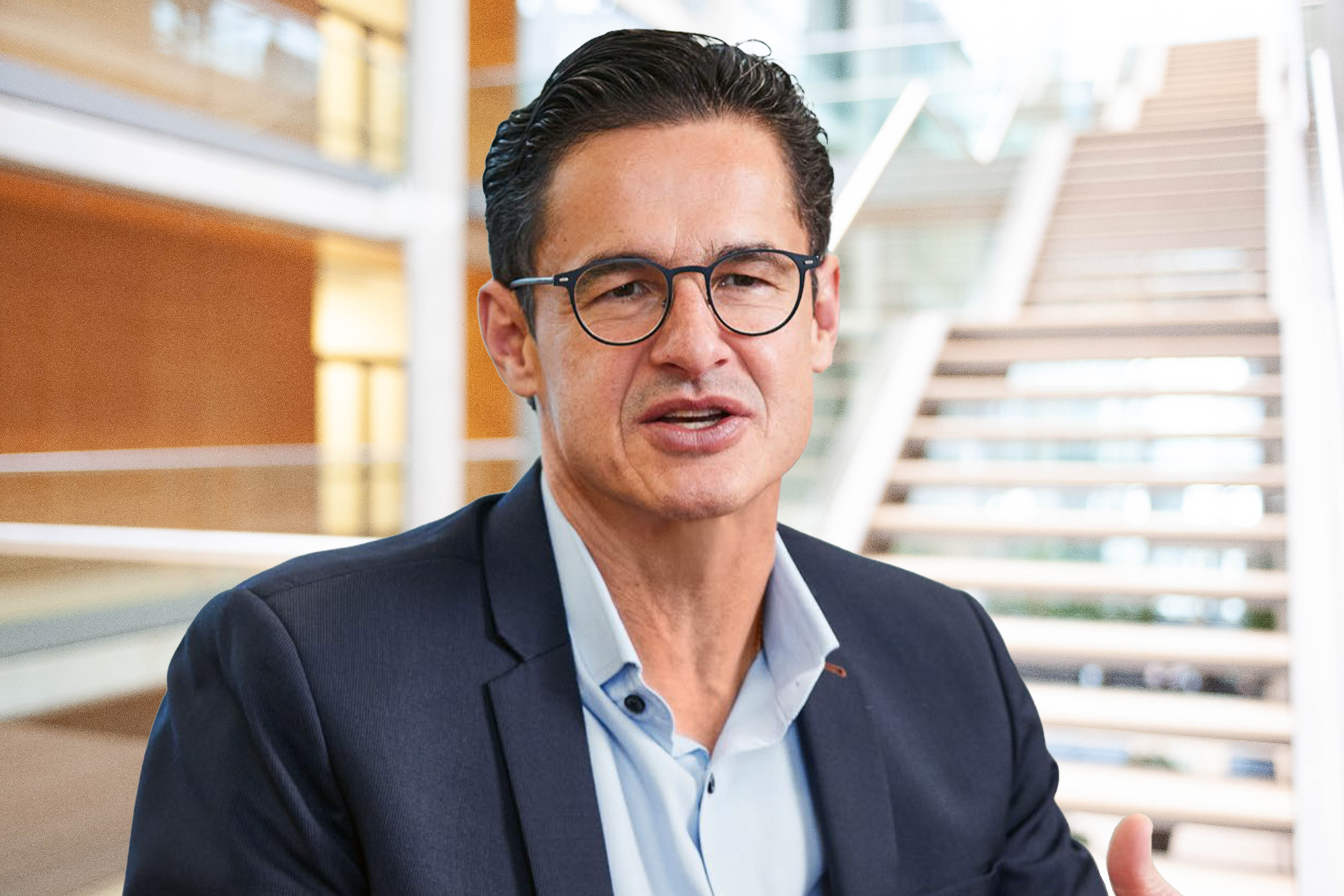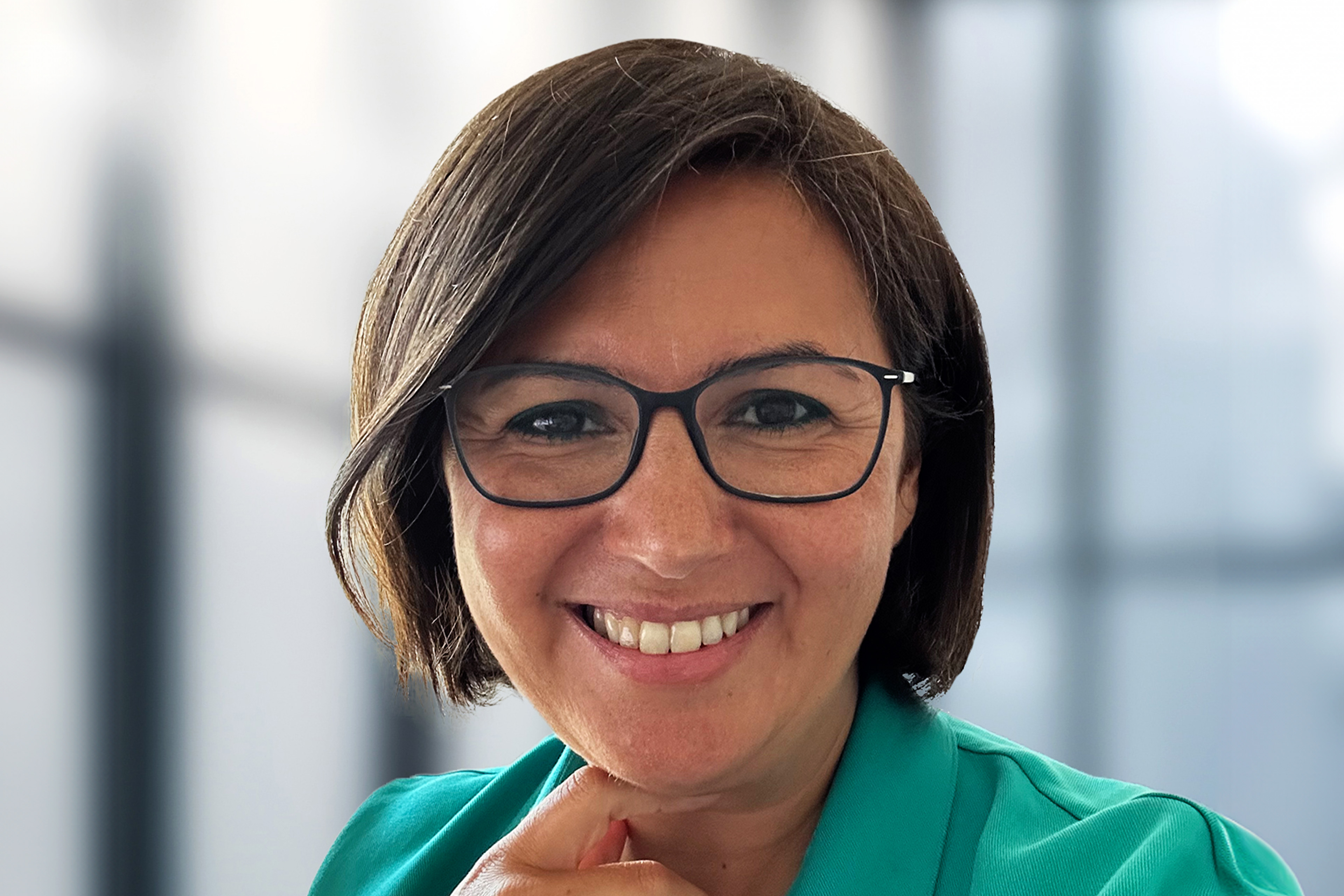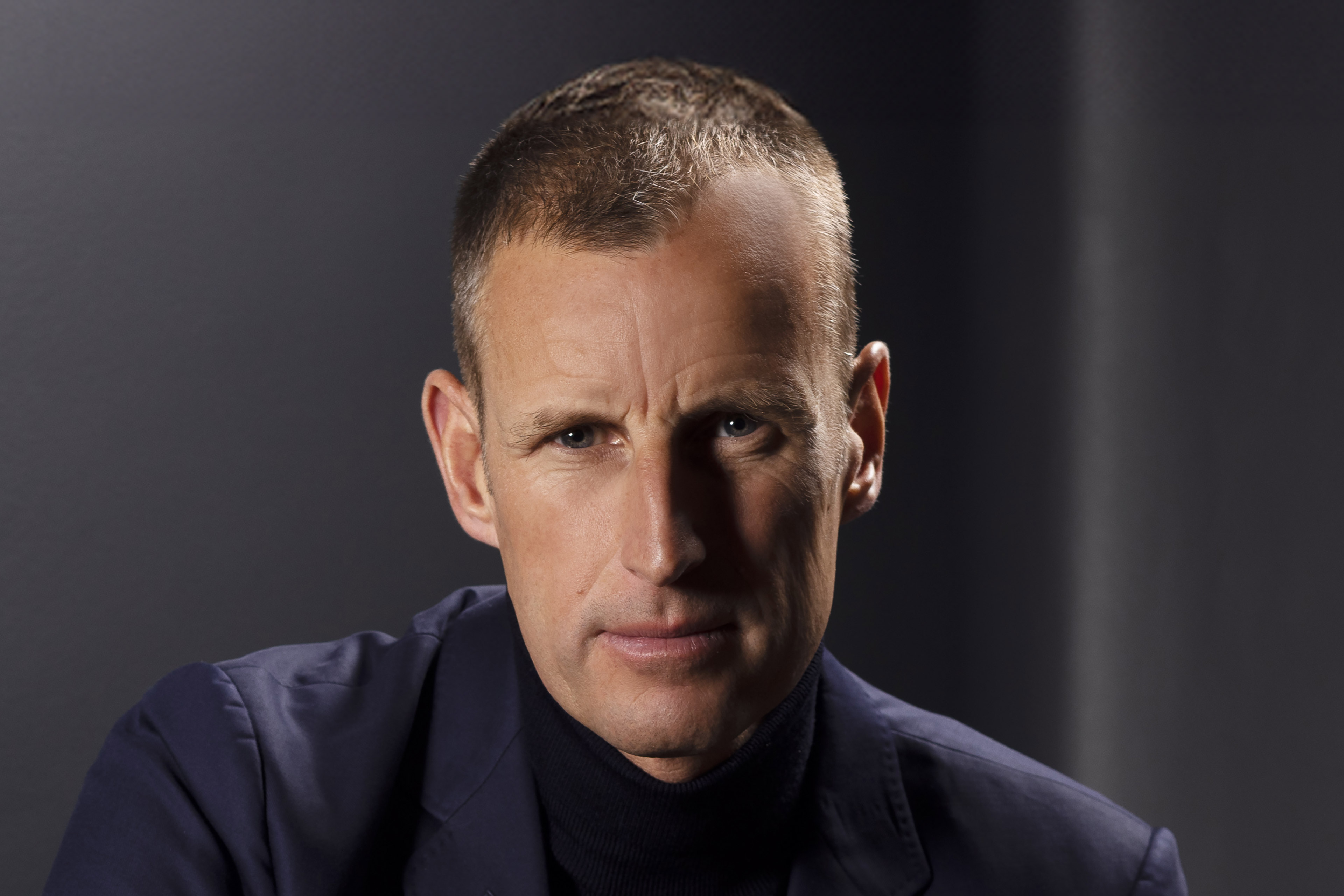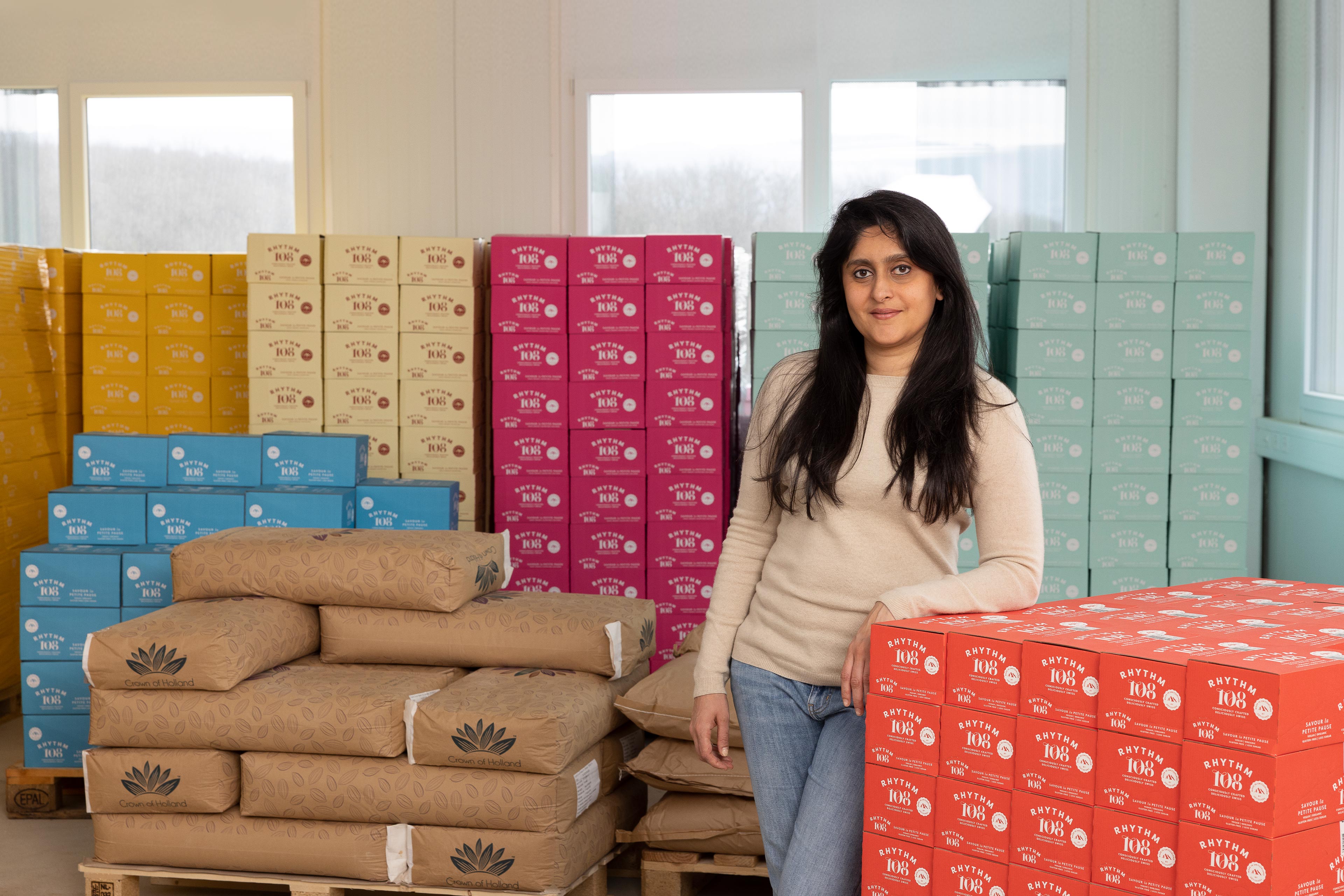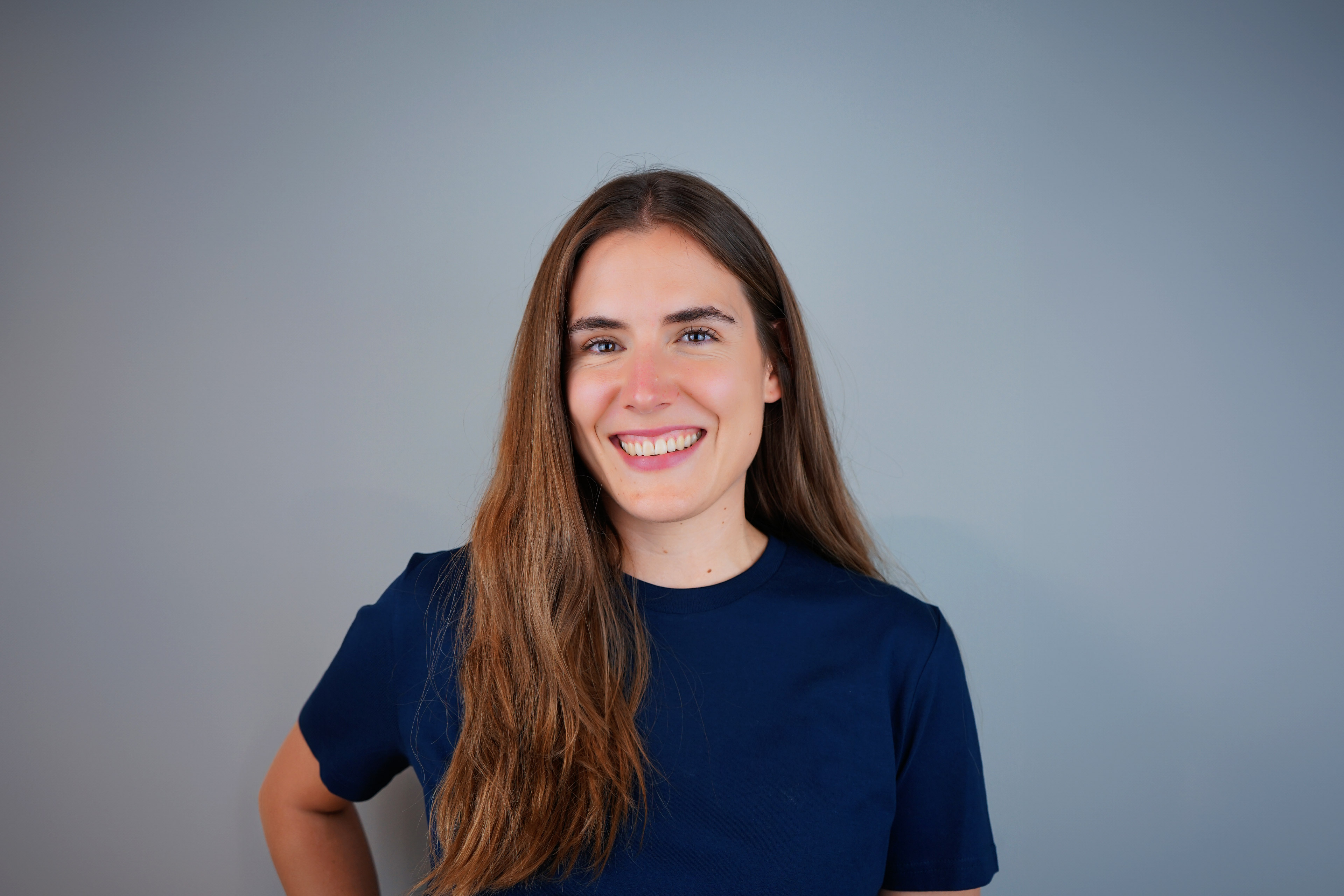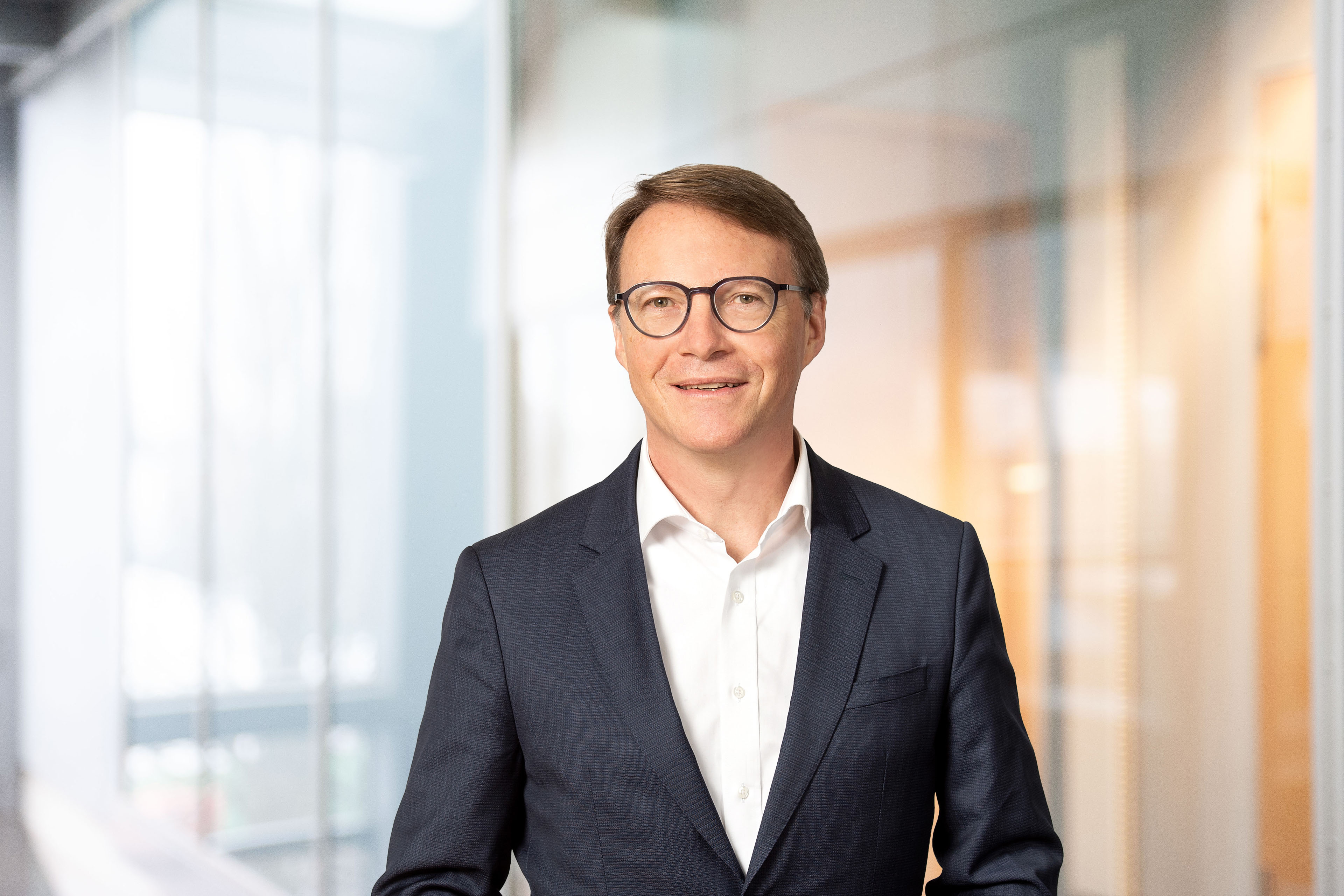EY refers to the global organization, and may refer to one or more, of the member firms of Ernst & Young Limited, each of which is a separate legal entity. Ernst & Young Limited is a Swiss company with registered seats in Switzerland providing services to clients in Switzerland.
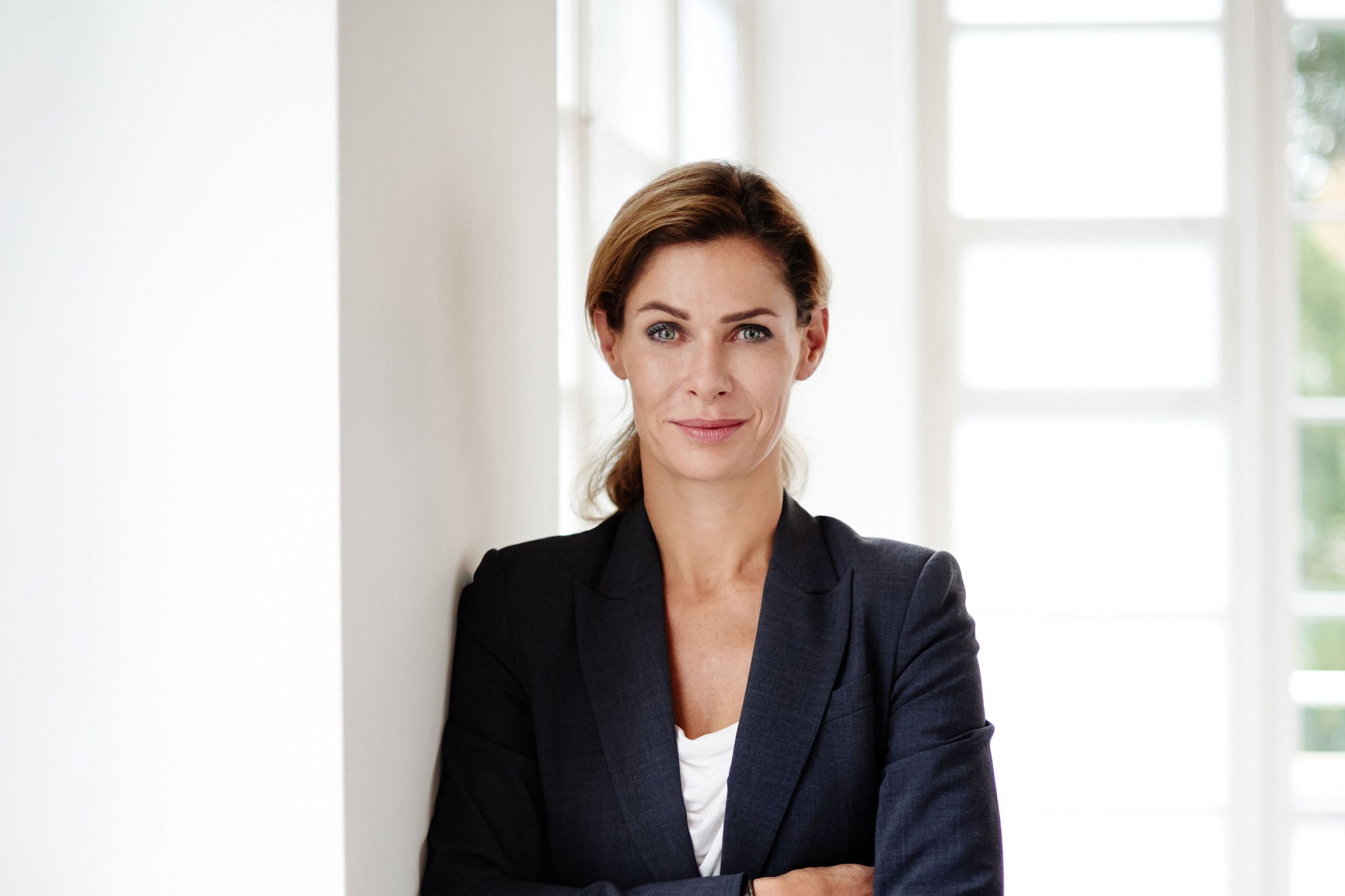
“Tackling climate change isn’t a sprint, it’s a marathon.
Mirjam Staub-Bisang
Mirjam Staub-Bisang has been Country Manager of asset manager BlackRock Switzerland and Senior Advisor for Sustainable Investing since 2018. Her work focuses on long-term, sustainable investing and the associated hurdles and opportunities with the aim of helping clients and society achieve net zero greenhouse gas emissions by 2050 or sooner. As attorney with a PhD in law, she has more than 20 years of experience in the financial industry. Following roles as an analyst for capital market transactions and principal for private equity investments, she worked as a market manager in the hedge funds sector. In 2005, Mirjam Staub-Bisang co-founded Independent Capital Group AG, which she led as CEO until 2018. From 2017 to 2019, she was President of Profond, one of Switzerland’s largest collective foundations for occupational pension plans.
Mirjam Staub-Bisang is the Swiss Country Manager of BlackRock, the world’s largest asset manager. In this interview, she explains how Covid affected her company and why climate summits like the 2021 UN Climate Change Conference in Glasgow are important.
Was it easy for BlackRock Switzerland to adapt to the new circumstances brought about by the pandemic?
In principle, yes. BlackRock is digitalized – even before Covid, which is one of our strengths. So, switching to working from home was relatively easy for us. When the crisis and lockdown hit, 98 percent of our people were working from home within just 48 hours – a remarkable achievement. Nonetheless, like many other companies and sectors, we saw an acceleration of our digital capabilities due to the shift to remote work. Without the pandemic, that wouldn't have happened, and that’s something positive. At the same time, the proximity to others within our company and to our clients suffered as a result of working from home. That was a challenge, of course. Fortunately, we are used to virtual and semi-virtual meetings, and our people are highly flexible in this regard. So, we were able to cope with the situation quickly. Our bare figures reflect also our success of quickly adapting to changed circumstances.
Has Covid changed the way you interact with your people?
Despite the greater physical distance during the lockdowns, interaction at BlackRock became even more personal during the crisis. Everyone made a conscious effort to maintain contact with each other. It was important to me that no one felt alone or neglected during this difficult time. So, I had lots of nice virtual meetings with colleagues that I probably wouldn’t have had under “normal” circumstances. We would catch up virtually in our living rooms – in our natural and private environment. This creates a very personal atmosphere and triggers a new sense of community. I am grateful for this experience with our team. Nevertheless, I welcome the gradual return to the office. After all, having a coffee on a video call is not the same as direct exchange in the office. This applies not only to our people, but also to our client relationships.
When the crisis and lockdown hit, 98 percent of our people were working from home within 48 hours.
Despite the greater physical distance during the lockdowns, interaction at BlackRock became even more personal during the crisis.
In your work, you focus on sustainable investing. How do you think the crisis has changed the way we look at environmental issues?
Coronavirus has raised awareness of sustainability issues and shown how fragile our world is. Unlike the pandemic, which caught us off guard, the climate crisis is not unexpected. However, we turned a blind eye for a long time. In the meantime, people have become aware that climate change is a threat to our livelihoods and that we need to act boldly and fundamentally change our behavior to achieve net zero by 2050. Tackling climate change is not a sprint, it’s a marathon. And we need the efforts of each and every one.
Do you sense this heightened awareness of sustainability within BlackRock as well?
Absolutely. We observe high demand for sustainable investments. And they’re increasingly coming into focus, off course also because they are performing well. This trend accelerated during the pandemic. As a result, we achieved the performance results of the full year 2020 with our sustainability products as early as the first half of 2021.At BlackRock, we talk about a tectonic shift toward sustainable investing. Furthermore, I think there is an increasing focus around sustainability and increased attention on societal issues like the environment and biodiversity, which have also been strengthened by Covid.As it happens, we broadly communicated our investment beliefs almost at the same time that coronavirus first broke out. For us, we outlined our conviction that sustainability risk especially climate risk – is investment risk. As a result, sustainability has become our investment standard. Since then, we have stringently implemented this strategy.
The summit in Glasgow between October and November 2021 was already the 26th UN climate conference. Hand on heart: do events like this still make any real difference?
Of course. At COP26, participating countries and the business community agreed to work together to advance climate goals on an unprecedented scale. And the financial industry is also on board. Some 450 international financial institutions – banks, insurance companies and pension funds with assets under management of over USD 130 trillion – have pledged to support the fight against climate change and the achievement of net zero targets by 2050. That’s a significant amount of capital and an enormously important step that sends a strong signal.
At COP26, participating countries and the business community agreed to work together to advance climate goals on an unprecedented scale.
How can investors ensure that a company they are investing in doesn’t achieve its ESG goals simply by selling any dirty business?
This is a good question and one that investors around the world are currently asking themselves: do they want a portfolio with as small a carbon footprint as possible, or should they stand by companies as they make the transition to net zero operations? Of course, it doesn’t make sense for energy companies to simply sell their CO2-intensive assets, for example, which then continue to be operated but in less responsible hands. Although this would make the balance sheet less CO2-heavy, those emissions have not been eliminated. I think this is where investors need to work with the companies to find a sensible exit. Pulling capital out of entire industries or shifting the financing of CO2-intensive assets from public to private markets is hardly conducive to achieving a net zero economy. In many of these industries, there are forward-thinking companies that are transforming their business accordingly and making an important contribution to decarbonizing the economy.
Where do you see potential threats and risks in the shift to a sustainable economy?
With every radical change, there are winners and losers. That’s why it is so important to involve the broader society, as far as possible, in this endeavor. I’m thinking, for example, of employees of companies currently operating in CO2-intensive sectors. We need to support these people on their way to a green future – through just change and an outstretched hand. In this way, we can prevent the affected individuals from falling by the wayside and divisions in society growing wider. But above all, I would like to emphasize that the transformation to a climate-neutral economy is first and foremost a great opportunity. I’ve been working in the field of sustainable investments for more than ten years now. After a long period where little was happening, I’ve recently noticed an incredible momentum. Sometimes I feel like we’re on an express train that can no longer be stopped. That’s why I’m hopeful about achieving the goal of net zero emissions by 2050 or sooner. Thankfully! If all of us – companies, investors, asset managers or private individuals – work together, we can do it and leave behind a healthy, liveable world for future generations.
Sometimes I feel like we’re on an express train that can no longer be stopped.
Featured articles and interviews
Sebastian Tobler, Co-founder and CEO of GBY SA
Sebastian Tobler is co-founder and CEO of GBY SA, which has developed a new approach for the rehabilitation of people with reduced mobility. An automotive engineer by training and trade, Sebastian Tobler’s life took a new direction when a bike accident left him paralysed. Alongside his entrepreneurial activities, he heads the SCI-Mobility Lab as Professor at the Bern University of Applied Sciences.
Originally from Naples where she grew up and studied physics, Luciana Vaccaro moved to Switzerland in 1996 to complete a PhD in microengineering at EPFL. She held various positions in research and education at the universities of Neuchâtel and Lausanne before heading the Grant Office at EPFL. In 2013 she took the reins of HES-SO as rector. Last October, Luciana Vaccaro was elected president of the umbrella organization swissuniversities and started in her new position on 1 February.
Francisca Obrecht, Weingut Obrecht
Peter Rupp grew up in Sargans, Switzerland, around 20km south of the Hilti headquarters in Liechtenstein. He studied Economics in St. Gallen, then took a post-graduate degree in Engineering in Winterthur.
Peter Rupp grew up in Sargans, Switzerland, around 20km south of the Hilti headquarters in Liechtenstein. He studied Economics in St. Gallen, then took a post-graduate degree in Engineering in Winterthur.
Serra Bicak is Senior Vice President Reckitt Africa Middle East at Reckitt Hygiene. She has lived and worked in eight different countries for various roles during her career in fast-moving consumer goods. Serra Bicak is passionate about diversity, equity and inclusion (DE&I) and leads Reckitt Hygiene’s gender balance program.
Patrick Pruniaux, Chairman & CEO of Sowind Group
Patrick Pruniaux has a background in business administration and began his career in the watch industry at TAG Heuer. Always fascinated by innovation, he joined Apple in 2014 and oversaw the launch of the Apple Watch. Following a move to Kering in 2017, he managed the Ulysse Nardin and Girard-Perregaux watch brands. In 2022, Patrick Pruniaux spearheaded the historic management buyout and now serves as CEO of these two brands within Sowind Group.
Siddhi Mehta, founder and CEO of Rhythm 108, talked to us about sustainability, craftmanship – and how her company combines heritage and innovation to take the Swiss chocolate tradition into the future.
Judith Häberli, CGO and co-founder of Urban Connect as well as EY Entrepreneur Of The Year™ 2023 Switzerland winner in the category "Emerging Entrepreneur", shares her motivation for starting a corporate mobility platform and explains why real change only happens when companies work together.
Thomas Fürer has served ABB for 22 years, including 14 years in his current role as Group Head of Tax. A Certified Swiss Fiduciary Expert and Certified Swiss Tax Expert, he takes a keen interest in technology and digitalization in the tax function and beyond.



